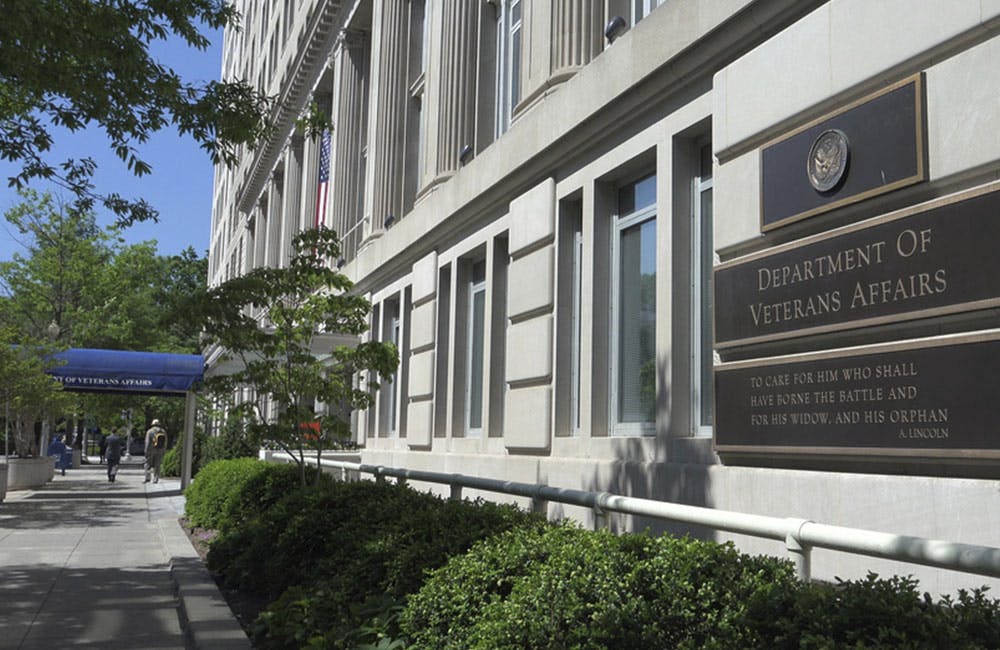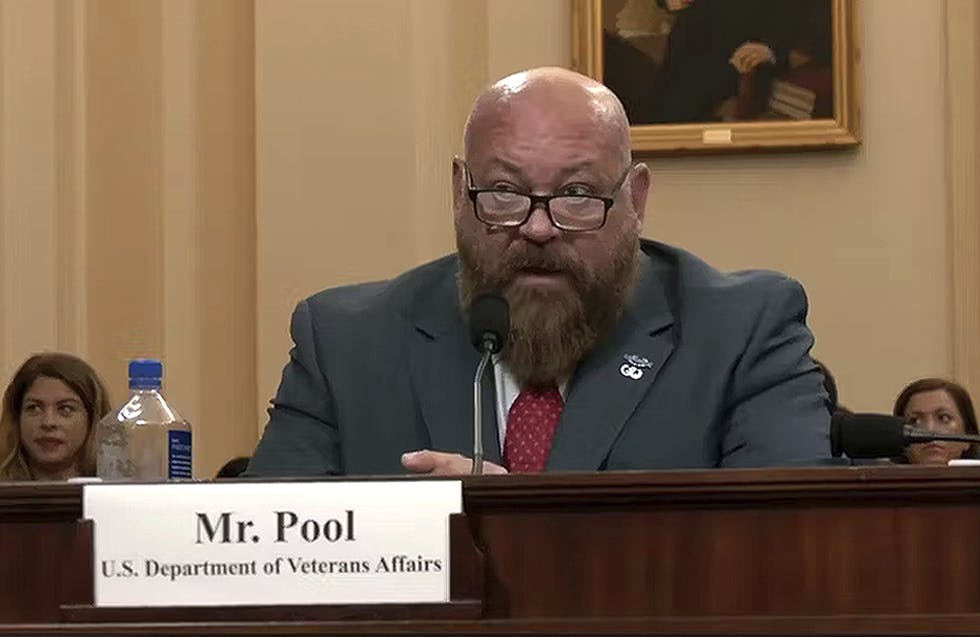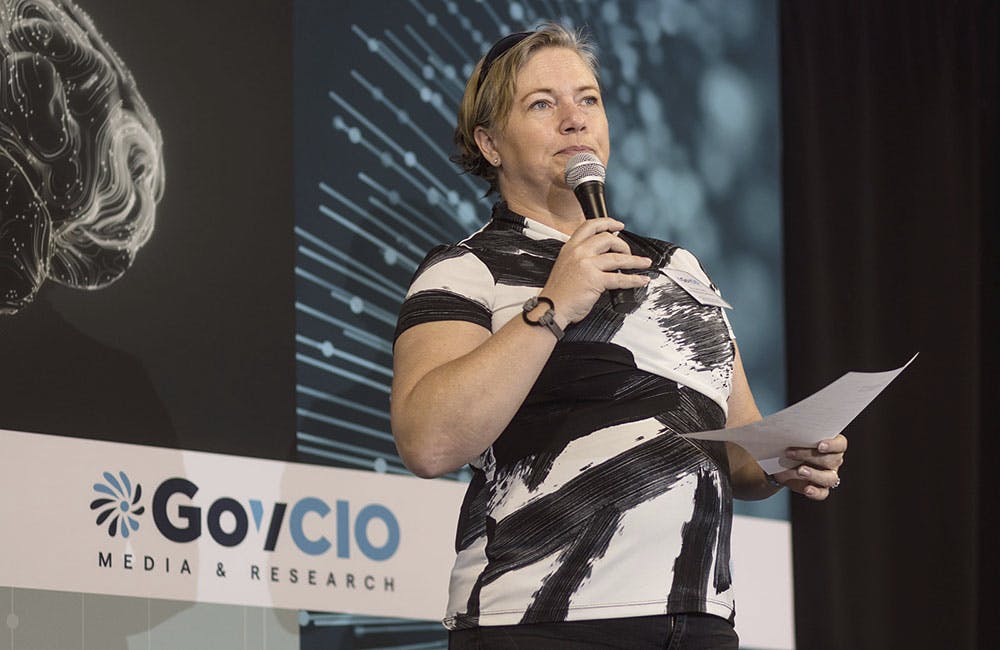How a Volunteer Group is Helping Government Digital Services ‘at the Speed of Need’
In less than a month, the U.S. Digital Response partnered with several state and local governments.

As local, state and federal governments race to combat the spread of COVID-19, it is not only the health care organizations that are in need of extra staff and resources, but also the offices in charge of tracking data related to the novel coronavirus, developing platforms for information-sharing and providing assistance to those whose livelihoods have been affected by the pandemic. Recognizing the need for volunteers in this sector, leaders with experience from Code for America, 18F, the U.S. Digital Service and other organizations came together to found U.S. Digital Response, a volunteer organization to assist government digital services.
In just three weeks, the organization has already found over 2,000 volunteers and launched several projects in cooperation with all levels of government.
“We have a very collaborative approach,” said Raylene Yung, CEO and one of the co-founders of U.S. Digital Response.
The founders’ goal was to combine public and private experience in digital development and design through “understanding government needs,” finding volunteers who can address those needs and ideally sharing best practices and open-source tools to broaden the reach of this aid.
However, “you don’t have to have a specific need,” said Robin Carnahan, director of government partnerships for the organization and former director of state and local practice at 18F. The group wants to reach out to government agencies to identify where they could use help, even if they are currently unsure where volunteers could add the most value.
Some of these areas, Carnahan explained, include aggregating supply and facility data for personal protective equipment like masks and other necessary equipment, developing code for contact tracing and understanding economic benefits from federal aid.
One partnership that has been especially successful has been between the volunteers and the New Jersey Department of Innovation, where teams have worked with the Federation of American Scientists (FAS) to develop an “ask a scientist” website for COVID-19 information.
“We needed a way to get information out to the public that they can trust,” said Giuseppe Morgana, one of the leads at the department.
The website has gone beyond its initial success to serve as a model for other sites at the local level, which are currently being implemented by a private-sector partner. The code for the site is also available through GitHub for anyone who wants to replicate the program.
Another volunteer team helped to develop an “eligibility wizard” to help small businesses determine their eligibility for assistance and apply for federal grants.
“USDR volunteers have nearly doubled the size of our team,” said Ross Dakin, another lead for the New Jersey Department of Innovation. It would have been impossible to develop these platforms nearly as quickly without their help, he added.
Volunteers have also helped to simplify processes across project development and customer experience, including coding efficiencies for small businesses to upload documentation through optical character recognition rather than manually entering their information.
Covid Act Now, another successful volunteer effort, created an open-source epidemiological model to chart and predict the spread of COVID-19 as well as model efforts to “destroy the curve,” in the words of one of the project’s founders, Jonathan Kreiss-Tomkins. In less than three weeks, the project team has grown from its five founders to over 45 contributors who want to use the model to add value to decision-making processes at all levels of government.
The model, which has been used by the Defense Department and the Army Corps of Engineers, currently tracks projections and measures at the state level, but will soon feature “county-specific” projections, Kreiss Tomkins said. As of April 2, Covid Act Now had integrated data from 2,120 out of 3,007 counties nationwide into its platform.
One hallmark of the volunteer program is that it has enabled development to move much more quickly than traditional procurement processes. Because volunteers are not government employees, the Digital Response group can pair them with government offices for as much or as little time as they are needed, assisting with projects in bursts.
Volunteers lend a hand “at the speed of need,” Dakin said.
Digital Response strongly encourages anyone who wants to lend a hand, no matter how much time they can volunteer, to reach out and offer their services to potential partners. Additionally, it works to amplify information about digital successes and best practices, said co-founder Jennifer Pahlka, former executive director of Code for America.
“If what you’ve built is effective for your city, county [or] state,” Pahlka said, “we want to help spread that.”
This is a carousel with manually rotating slides. Use Next and Previous buttons to navigate or jump to a slide with the slide dots
-

NSF Wants Industry Driving Quantum Innovation
The agency is pushing for partnerships to enhance the research community as Congress weighs additional legislation.
3m read -

White House Science Chief: US-Driven AI Sets Global Standards
Michael Kratsios outlined how American AI technology on the global stage will help standardize the tech and counter China’s influence.
5m read -

Modernizing Critical Infrastructure in the Face of Global Threats
Officials are expanding the latest strategies in boosting defense infrastructure, including securing satellite communications, upgrading enterprise-wide technology, optimizing data management.
20m watch -

Trump AI Orders Call for Speed in Building Infrastructure
The directives call for expanding AI infrastructure, streamlining federal permitting and promoting AI exports.
4m read -

DOD Accelerates Software Modernization with Agile DevSecOps Push
The Pentagon's software implementation plan tackles cultural hurdles and integrates security early to deliver critical capabilities faster.
6m read -

White House Unveils AI Action Plan to Secure Global Dominance
The strategy outlines steps to accelerate private sector innovation, build critical infrastructure and advance U.S. leadership in AI policy and security.
3m read -

VA's Platform One Powers Rapid Innovation to Bolster Digital Services
VA's Platform One accelerates software development timelines from weeks to hours, ultimately enhancing digital services for veterans.
5m read -

Federal Leaders Receive Federal IT Efficiency Flywheel Awards from GovCIO Media & Research
Five federal IT leaders received Flywheel Awards for driving innovation and modernizing technology at the Federal IT Efficiency Summit.
5m read -

Doing More with Less is Muscle Memory for IRS, Former Deputy CIO Says
Darnita Trower discusses her experience, the legacy she’s left behind and how she pushed the IRS to modernize itself,
20m watch -

Opinion: Original Intelligence Is the Missing Piece for AI Transformation
Limitations of AI agents and development drive growing needs for workforce development and "original intelligence."
3m read -

VA CIO Targets Modern IT and Smarter Workforce Alignment
Agency leaders told lawmakers they are focused on trimming legacy systems and restructuring its workforce to streamline operations.
3m read -

Pentagon's $200M AI Contracts Signal Broader Effort to Transform Talent
The Army is leveraging Silicon Valley, reservist programs and new hiring strategies to integrate critical digital skills in its ranks.
5m read















